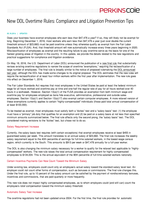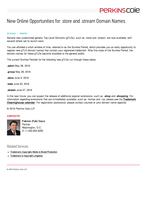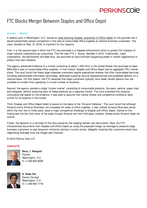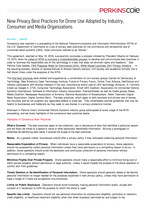Description
unlikely to be entirely free from controversy. In particular, the FCC is likely to receive industry pushback on the extent
to which it should be consolidating and storing the sensitive information that it receives, and whether responses to
threshold questions should be presumptively confidential. (The NPRM proposes to make threshold responses
presumptively non-confidential.) In addition, the FCC’s sweeping certification proposal is likely to be characterized as an
overreach that is not properly tailored to the requirements and purpose of the Team Telecom review process.
Moreover, the NPRM’s request for comments regarding certification requirements applicable to all “international 214”
applicants seemingly runs against the NPRM’s objective of reducing regulatory burdens. Some may also find the shotclock proposal to be an inadequate response to the criticisms of the Team Telecom review process.
Nonetheless, the NPRM presents a real opportunity for stakeholders to pursue reforms to make the Team Telecom review faster, more reliable and less burdensome. © 2016 Perkins Coie LLP CONTACTS Marc S. Martin Brendon P. Fowler Lawrence Robert Krevor James F.
Ianelli Related Services Technology Transactions & Privacy Law Privacy & Security Law Communications © 2016 Perkins Coie LLP .
Nonetheless, the NPRM presents a real opportunity for stakeholders to pursue reforms to make the Team Telecom review faster, more reliable and less burdensome. © 2016 Perkins Coie LLP CONTACTS Marc S. Martin Brendon P. Fowler Lawrence Robert Krevor James F.
Ianelli Related Services Technology Transactions & Privacy Law Privacy & Security Law Communications © 2016 Perkins Coie LLP .













